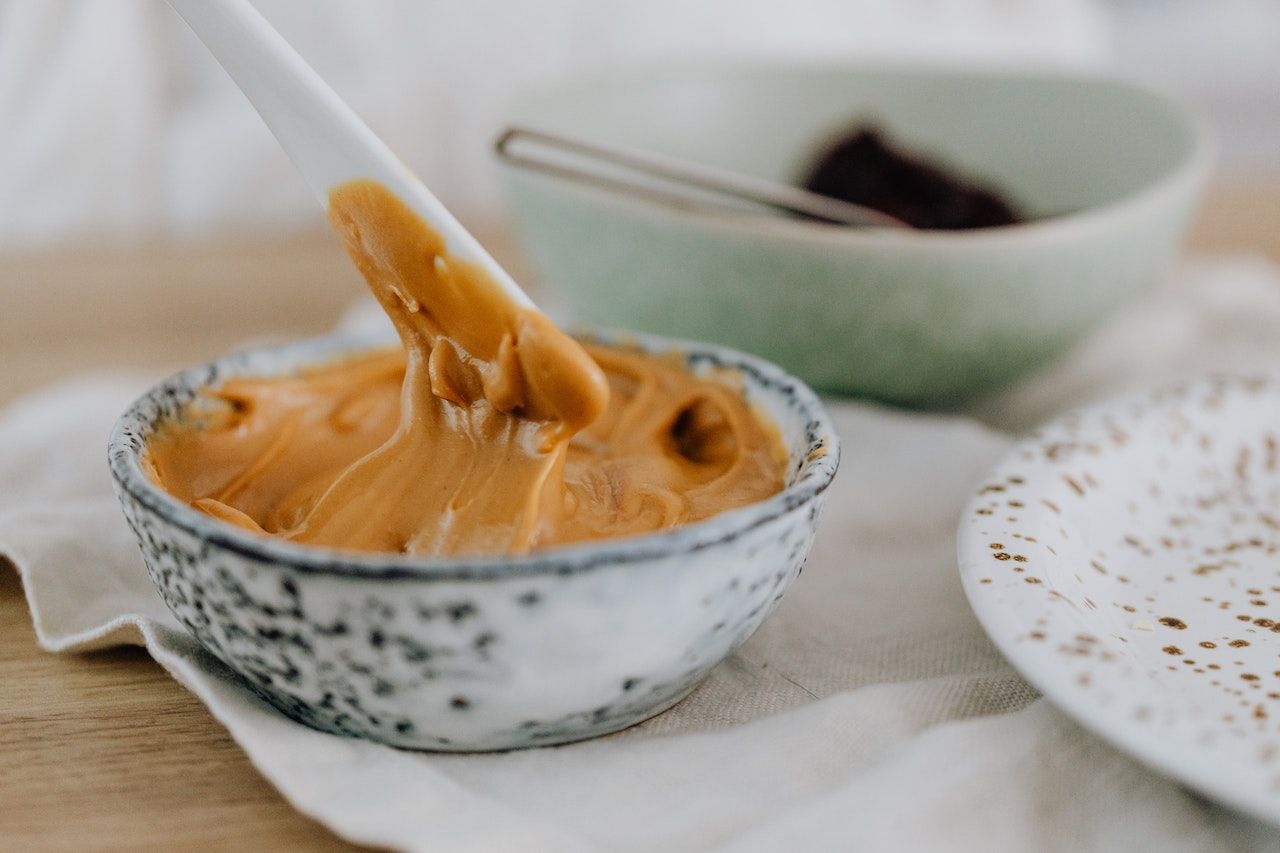Blog

If you're a dog lover, then you know that spoiling your furry friend with treats is one of the highlights of being a pet parent. And you’re also probably aware that the healthiest thing to feed your dog is animal protein. But what type of meat treat is healthiest for your dog? In this guide, we’ll look at some of the most popular meats that are used in dog treats, and the pros and cons of each option. Choosing a healthy dog treat: why meat? Meat provides dogs with protein, which is generally held to be the most important component of a healthy canine diet. The Association of American Feed Control Officials (AAFCO) recommends that adult dogs eat foods that are at least 18% protein, while puppies and pregnant or lactating females eat foods that are at least 22.5% protein. It can also be helpful to understand the amount of protein your dog needs each day, rather than the percentage of food that should be made up of protein. As a general rule of thumb, dogs need about 1 gram of protein, per pound of body weight, per day. Beef dog treats: Pros and cons Most humans love eating beef, and our dogs love it, too! In addition to protein, beef is rich in nutrients that dogs need, like Vitamin B12, iron, zinc, Omega-3, and Omega-6. Beef treats made from organ meat, like liver, can offer even more health benefits. Beef liver products usually contain a high concentration of Vitamin A, which supports good vision, as well as choline, which supports healthy cognitive function. However, there are also a few downsides to choosing beef when feeding and rewarding your dog. The first is doubtlessly the price. Beef is usually more expensive than other animal meats, like chicken and turkey. It can also be high in saturated fat, and therefore calories, making it a poor choice for overweight dogs. Lastly, beef is the protein with the highest risk for dog food allergies, meaning some owners have no choice but to avoid it. If you are looking for high-quality beef dog treats, look for a brand that advertises a single ingredient—100% air dried beef. Our own beef liver treats are a great example of a healthy beef treat that is free of chemically synthesized ingredients, additives, and preservatives. The beef is carefully air dried in small batches to ensure that as many nutrients are preserved as possible. Chicken dog treats: pros and cons If your dog cannot eat red meat, or if you are looking for a more budget-friendly option, chicken can be a great choice for dog food and dog treats. Chicken is a great source of lean protein, as well as cysteine methionine, an amino acid that supports a healthy coat and nails. Chicken also tends to be easier on the stomach than beef, so dogs suffering from digestive issues might have an easier time with chicken. However, it’s important to be careful when buying chicken treats for dogs. Many chicken dog treats are made with chicken meal, a powder-like substance made from chicken parts and chicken by-products. Many dog food manufacturers source chicken meal from “4D” meat—Dead, Dying, Diseased, or Disabled animals. It’s no wonder that a rash of deaths arose back in the 2010s from dogs that ate chicken treats, especially those sourced from China. Since that was over 10 years ago, concerns are greatly diminished nowadays. However, it’s still important to do your homework. In order to keep your pet safe, avoid products made from chicken meal, especially those made in China, where there are fewer regulations. Buying products made from 100% air dried chicken muscle meat, like Green Coast Pet’s chicken crisps , are usually much safer. When you toss your pup a dehydrated chicken treat, there are no surprises—you can see everything that’s in it! Pork dog treats: Pros and cons Can dogs eat pork safely? The answer is yes—as long as it is selected and prepared appropriately. Bacon, sausages, and other processed pork products are a hard “no” if you want to ensure your dog’s health (and reduce upset-stomach stains on your carpet). The high salt and fat content in processed pork, as well as spices and additives, are not always easy for dogs to digest. Frequent ingestion of high-fat meats can also lead to canine pancreatitis and other diseases. However, minimally-processed, high-quality pork which is cooked with little to no seasonings can have a number of health benefits for both you and your four-legged friend. Pork is rich in vitamins and minerals, like zinc and iron, and provides about the same amount of protein as beef, at a lower cost. It has a much higher fat content than beef, however, meaning pork is best suited for treat time, and should not be a staple of your dog’s daily diet. The safest type of pork treat for your dog will be sourced from a single ingredient—pork muscle meat—and contain no additives, preservatives, or artificial flavors. Our own pork treats are a great example of a healthy dog treat that won’t put your dog at risk. Giving meat treats to your dog: Final thoughts In summary, remember to always distribute dog treats in moderation. Treats should be given sparingly—just once or twice a day—and never used to supplement food. Additionally, note that all dogs are different, and the best way to find out which treats your dog enjoys (and digests well) is to try different options and compare them! To find a variety of single-ingredient, natural dog treat options, visit our online shop , or check out our map to find Green Coast Pet products in a store near you.

Perhaps you are one of the millions of U.S. pet owners whose dogs suffer from anxiety. You may find that, when your dog is anxious or alone, he or she expresses stress through panting, trembling, scratching, chewing, or urinating inside the house. While the best way to handle this situation is to verify with a veterinarian that there aren’t any underlying conditions, and then consult a behavioral specialist, there are also small steps you can take at home to give your pup some much-needed relief. Dog-safe peanut butter and peanut butter treats can be a safe way to help with canine stress—here’s how. 4 Key benefits of peanut butter pet treats: 1.) It promotes a feeling of fullness: Almost every animal calms down when it feels full, including us. Our brains are hard-wired to seek out food, especially food that is high in fat, which is rare in nature. Once we eat, our brains release dopamine, causing feelings of happiness and pleasure. Though this can often be a negative thing for humans, leading to eating addictions and obesity, we can use it as pet owners to help soothe our anxious pets. Since peanut butter contains healthy fats, it helps to promote a feeling of fullness and safety. 2.) It enables the licking coping mechanism: Dogs don’t just lick things because they like to taste things; they also use the behavior as an emotional coping mechanism. Licking has been found to release endorphins which restore calm in stressed-out dogs. Humans, particularly children, often engage in the same sort of behaviors, by rocking back and forth, thumb sucking, or fingernail biting. If you have a friend or family member who starts biting their nails when a situation becomes stressful, then you are already familiar with self-soothing behaviors! While licking is a natural form of self-therapy for many dogs, and they will engage in it by themselves, we can help them by encouraging them to lick when we know they are feeling stressed. Placing some dog-safe peanut butter on a lick mat, or inside of a rubber toy, can help encourage healthy licking behavior and reduce anxiety. 3.) It helps distract from unpleasant situations: Many dogs—in fact, the majority of dogs—only experience stress during a particularly overstimulating occasion. Fireworks on the Fourth of July; thunderstorms; parties; baths; and vet visits are the most common culprits of doggie anxiety. In these situations, giving your dog some peanut butter to lick provides another benefit, too—it helps to distract them from the stressful stimuli around them, and re-focuses them on the challenge at hand. You can also try handing your dog a peanut butter treat every few moments to encourage good behavior (for instance, while bathing). 4.) It can help to disguise medication: Peanut butter is also highly useful for disguising medication, or prescription food that your dog doesn’t want to eat. Mixing a little peanut butter into a new food is often enough to help make it appetizing (though of course, check with your veterinarian to ensure this will not reduce the food’s efficacy). “Pill wraps” are another lifesaver for pet parents that help make medication administration easy. In the case of our own Pill-a-Pet™ , you can simply tear off the amount you need, wrap it around the pill, and hand it to your pup. The vast majority of dogs will gobble it up quickly, disregarding the medication inside. Needless to say, this is even more beneficial if the medication in question is for anxiety. Final notes about peanut butter treats It’s important to remember that every dog is different, and their reactions to various products will vary. Your best bet in calming your dog’s anxiety is to try different solutions and see what works best for him or her. Working with a veterinarian and/or behavioral specialist is the best way to create an effective anxiety management strategy. Remember, too, that moderation is key when giving your dog peanut butter treats. Peanut butter should always be given in small amounts, and should never be used as a meal replacement. Finally, make sure you are giving your pet dog-safe peanut butter only. Dog-safe peanut butter is usually created without any added sugar, salts, or artificial ingredients, helping with weight management. It is also free of xylitol, a sweetener that can be highly toxic for dogs. We hope we helped answer any questions you had about the calming benefits of peanut butter. For more advice and nutritional tips, feel free to check out our blog . You can also visit our online shop for tons of pet-safe products, or check out our map to find our products in a store near you!

Few things go together as well as puppies and peanut butter. The vast majority of dogs will go bananas for a spoonful of the stuff, making it a favorite household item for pet parents everywhere. You may be surprised to learn that peanut butter—especially dog-safe peanut butter—has many health benefits for your dog, too. Below are five things peanut butter contains that make it a healthy, safe treat for dogs. Peanut Butter for Dogs is Nutritious As a descendant of wolves, it’s no surprise that protein makes up a critical part of your dog’s diet. The AAFCO (Association of American Feed Control Officials), which helps identify pets’ nutritional needs, recommends that protein make up 18-22% of a dog’s daily diet. Protein This protein is essential for maintaining healthy tendons and ligaments, as well as forming healthy blood, muscle, fur, and skin. The amino acids in protein also help support your pup’s immune system, repair and maintain cells, and assist with making hormones and antibodies. Peanut butter is 25% protein, which is quite high, especially for a plant-based food. Other sources of protein meat, namely—tend to be on the expensive side. We’re not saying to replace your pooch’s meat-based kibble with peanuts, but do be aware that peanut butter is a very cost-effective and protein-rich snack to give out from time to time. Fiber Fiber is essential for regulating the digestive tract in all mammals, including dogs. Both soluble fiber (which dissolves in water to form a gel-like substance) and insoluble fiber (which doesn’t dissolve) have plenty of benefits, like lowering the risk of cardiovascular disease; lowering high cholesterol levels; decreasing the risk of diabetes by slowing the absorption of sugar; and aiding in weight maintenance . It can also, of course, reduce constipation or diarrhea, depending on what type of fiber is consumed and how much water is taken with it. With 1 gram of fiber in every tablespoon, peanut butter is a great, fiber-full treat to give dogs. Choosing a peanut butter for dogs that contains flaxseed can also help increase fiber intake and support overall digestive health. Magnesium & manganese Peanut butter also contains magnesium and manganese, two essential minerals for both canine and human health. Magnesium helps to facilitate energy production at the cellular level, and also helps to reduce oxidative stress from free radicals. Manganese, a trace mineral found mostly in the liver, kidneys, and pancreas, is necessary to metabolize protein and carbohydrates into energy. Peanut butter is also high in phosphorus, which works with calcium to improve bone density and dental strength. Healthy fats Peanut butter is known for being high in fat, but this is not entirely a bad thing. Polyunsaturated fatty acids, also known as “healthy fats,” contain nutrients that are essential for your dog’s health. The most well-known, and nutritionally important, fatty acids include Omega-6, which boost skin and coat health; Omega-3, which reduces inflammation; and docosahexaenoic acid (DHA), which assists in healthy development of the nervous system and eyes. Salmon oil, other cold-water fish oils, and flaxseed oil are all excellent sources of Omega-3 fatty acids for dogs, so giving your dog a brand of peanut butter that contains flaxseed is a great way to ensure they are getting all the healthy fats they need. How much peanut butter should I give my dog? Our discussion of healthy and unhealthy fats leads us to the obvious follow-up question: how much peanut butter is too much? This question is somewhat difficult to answer, as it will depend largely on your dog’s size, weight, age, and overall diet. Generally speaking, though, you should try to limit peanut butter to one daily teaspoon for small dogs and one daily tablespoon for large dogs. Be sure to consult with a veterinarian to confirm how much peanut butter is appropriate. Another thing you can do to help your dog maintain or achieve a healthy weight is purchase a brand of peanut butter made specifically for dogs. This kind of peanut butter typically does not contain the salts, sweeteners, emulsifiers, and other additives that humans prefer. For instance, our own PawNut Butter is made with just two ingredients—peanuts and flaxseed—and contains no hydrogenated oil, gluten, wheat, corn, or soy additives. Keep your dog safe: avoid peanut butter containing xylitol The biggest advantage of dog-safe peanut butter is that it does not contain xylitol, a sugar additive that can be highly toxic for your pet. Even a small amount of xylitol can be fatal for dogs, so it’s important to buy all-natural peanut butter that does not contain it. Many pet stores and online shops sell dog-safe peanut butter, and it is not much more expensive than peanut butter for humans. Our own brand of peanut butter for dogs, Pawnut Butter™, can be found in hundreds of stores around the world, so be sure to check out our map for a location near you! You can also visit our online shop for tons of nutty, pet-safe items, including peanut butter hemp chews and peanut butter pill pockets . We hope we helped answer any questions you had about the nutritional benefits of peanut butter—now, go give your pup some love!

Humans love our beef jerky. According to IBISWorld , Americans consumed about $1.2 billion worth of air dried beef products in 2023 alone. It’s no wonder that pet parents are keen to share this tasty snack with our pups—and it’s a good thing when they do, because dog-safe beef products have tons of nutritional benefits. Below are just a few advantages of feeding your dog air dried beef treats. Filler-free beef treats are great for weight maintenance Obesity is a problem for us and our pets. The Association for Pet Obesity Prevention reports that more than 50% of pet dogs are overweight or obese, and that obesity is the most common preventable disease in North American dogs. Far from being an aesthetic issue, obesity in dogs increases the risk of developing severe health conditions, like arthritis, diabetes, kidney disease, and heart disease. The best way to help a dog maintain a healthy weight is to limit his or her food intake. The second-best thing you can do is feed your dog treats made of 100% meat. Just as is the case with human snacks, cheap dog treats are often full of high-calorie, low-nutrient fillers, and can quickly lead to weight gain. Single-ingredient beef treats are naturally low in fat, and can therefore help reduce the risk of weight gain and related problems such as pancreatitis and gastrointestinal issues. 100% beef treats help provide the protein your dog needs Dogs are descended from wolves, and while they’ve done a lot to adjust to the diets of their human companions, they still primarily need protein to be active and healthy. Protein helps repair tissues, encourage healthy muscle development, support a healthy immune system, and much more. The AAFCO (Association of American Feed Control Officials) recommends that dogs’ diets contain at least 18% crude protein. At about 85% protein, air dried beef treats are a great way to ensure your pup is getting what he or she needs. Air dried beef treats are high in protein, vitamins, & minerals When meat is air dried, it is cooked over a very low temperature for an extended period of time. This slow, gentle process preserves vitamins and other temperature-sensitive nutrients much better than baking, cooking, and frying does. Air dried beef treats for dogs, therefore, are rich in vitamins and nutrients that build strong muscles, bones, teeth, and tissues. To be more specific, most single-ingredient beef treats for dogs contain: Iron, which helps red blood cells transport oxygen throughout the body Magnesium, which helps encourage signaling between muscles and nerves Zinc, which promotes growth, immunity, and wound healing Vitamin B12, which helps overall cellular function Potassium, an essential electrolyte which helps the heart and nervous system You can see why one or two beef treats per day is almost like a doggie vitamin supplement! Beef treats help improve dental health Scientists have not yet reached an agreement on this, but there is some evidence to suggest that beef treats for dogs can help promote healthy gums and prevent periodontal disease. It is thought that chewing on a semi-hard beef treat provides a gentle scraping action that reduces plaque and tartar, a little like a toothbrush. While there are other things that you can do to help maintain your dog’s oral health—such as brushing their teeth with a pet-safe toothpaste—there are few things that they will enjoy more than a bite of beef! No matter what verdict is eventually drawn concerning beef treats and dental health, one thing we can say with certainty is that they are far better for your dog’s oral hygiene than cheap treats full of carbohydrates and sugar. This is because tooth-destroying bacteria love carbs and sugar, and process it into acid that destroys enamel. Chewing on beef treats helps mental health and behavior Your dog was born to chew—but it lives in a world where it is not allowed to chew on… almost everything. An air dried beef treat, however, is a safe, pet-parent approved outlet for all that chewing energy. Chewing also provides mental stimulation and enrichment for your pup, meaning it is more likely to leave your shoes and furniture alone! Chewing is also a way dogs cope with stress —so if your dog suffers from anxiety, giving it something to chew on might help alleviate its symptoms. How to find healthy beef treat for dogs While there are many beef treats for dogs on the market, they often contain additives, fillers, and preservatives that negate all of the benefits we’ve discussed in this article. When shopping for beef treats for your dog, look for products with one single ingredient—beef. That’s all that is needed to make your pup perfectly happy and healthy. Green Coast Pet’s Beef Liver Crisps are a great option for pet parents who want the very best for their dogs. Our treats are made from 100% pure beef liver, and are the perfect crispy, crunchy, low-calorie snack for dogs big and small. To find a store near you which carries our products, browse our store locator tool. Or, you can simply order your pet's treats online and have our products shipped to you! We hope that this article has helped you learn about the incredible benefits that all-natural beef treats can provide.






